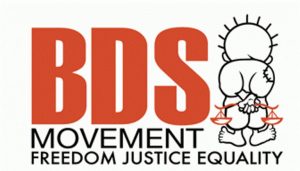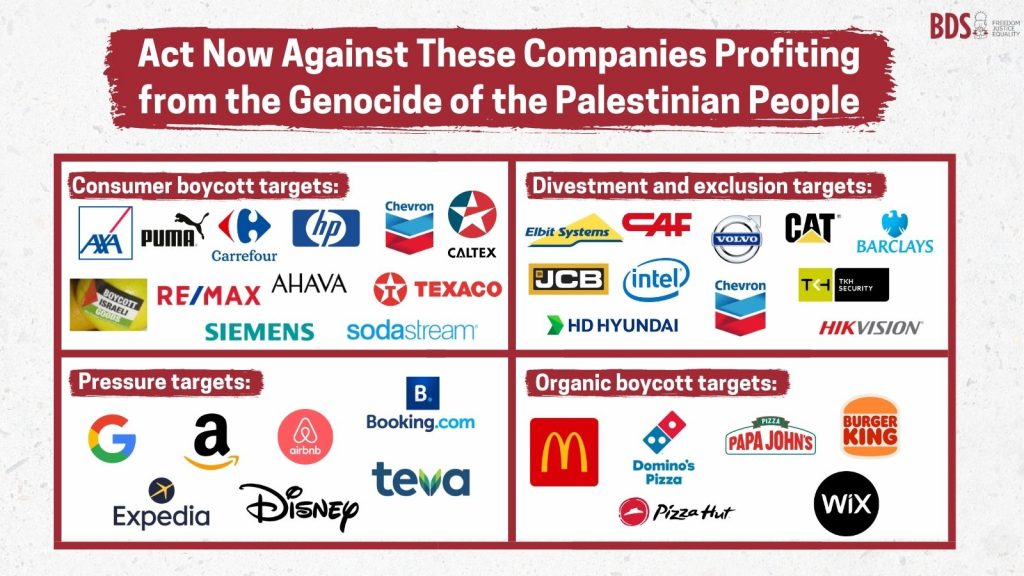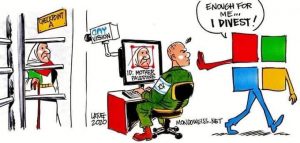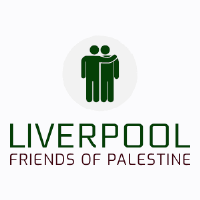
On 9 July 2005 172 organisations in Palestinian civil society launched the appeal for a campaign of boycott, divestment and sanctions to compel Israel to comply with international law and to respect Palestinian rights:
We, representatives of Palestinian civil society, call upon international civil society organizations and people of conscience all over the world to impose broad boycotts and implement divestment initiatives against Israel similar to those applied to South Africa in the apartheid era. We appeal to you to pressure your respective states to impose embargoes and sanctions against Israel. We also invite conscientious Israelis to support this call, for the sake of justice and genuine peace.
The declaration, together with details of signatories, can be found HERE.
In November 2007 the first Palestinian BDS conference was held in Ramallah and set up a Boycott National Committee (BNC). The role of the BNC is defined as
- To strengthen and spread the culture of boycott as a central form of civil resistance to Israeli occupation, colonialism and apartheid;
• To formulate strategies and programs of action in accordance with the 9 July 2005 Palestinian Civil Society BDS Call;
• To serve as the Palestinian reference point for BDS campaigns in the region and worldwide;
• To serve as the national reference point for anti-normalisation campaigns within Palestine;
• To facilitate coordination and provide support & encouragement to the various BDS campaign efforts in all locations.
Campaigns for BDS might be described as having these aims:
1. Ending Israel’s occupation and colonisation of all Arab lands and dismantling the Apartheid Wall
2. Recognising the fundamental rights of the Arab-Palestinian citizens of Israel to full equality; and
3. Respecting, protecting and promoting the rights of Palestinian refugees to return to their homes and properties as stipulated in UN Security Council resolution 194.
BDS is not a magic bullet. It can’t replace the active resistance of Palestinians. In South Africa in the 1980s, it took sustained action by militant new trade unions, student and civic unrest making the townships ungovernable, South Africa’s military defeat by Angolan and Cuban forces, as well as the international boycott, before the apartheid regime changed course. But when it comes to what we can do as ordinary citizens outside Palestine, BDS is our best shot.

The latest guidance (2024) from the Palestinian BDS National Committee can be found HERE.
Boycott
Boycotts are directed against companies and institutions that profit from Israel’s oppression of the Palestinians. Anyone can do this although it is more effective when people act together.
- Don’t buy goods or food made in Israel – look at the label
- Don’t buy goods produced by companies which have a stake in the Israeli occupation
- Don’t accept sponsorship from bodies that promote the state of Israel
- Don’t promote artists who support the Israeli occupation
- Don’t engage in joint research initiatives with Israeli state-backed institutions
For most of us the most frequent point of decision is the food that we buy. A look at the label should show whether a product originates from Israel or not. European Union regulations require products from Israel’s illegal West Bank settlements to be labelled to that effect. All the major British supermarkets stock Israeli goods. Most of them do not stock goods from the settlements. A detailed appraisal of the position as at the start of 2020 can be found in a pamphlet produced by Corporate Occupation called Apartheid in the Fields, advertised HERE.
A frequent question is what products to boycott (as there are so many!). A helpful guide from the BDS movement (as at November 2023) is HERE.
There is a separate page on this site about the cultural boycott.
Divestment
Divestment campaigns seek to stop money flowing into the Israeli economy as investment from abroad. The main targets here are
- pension funds (including those of local authorities and trade unions)
- church investment funds
- university investments and research contracts
- banks
- companies with subsidiaries or big contracts in Israel
Not many of us can make significant disinvestment decisions. But a well-directed campaign can influence funds or companies to change their priorities and sometimes withdraw from Israel altogether. If having a stake in an apartheid state looks bad, risky or might be bad for business – they get out!
Local authority pension funds are the subject of pressure by council unions to keep their investments ethical. The Government tried in 2016 to stop that pressure by issuing mandatory ‘guidance’ on investment decisions. That guidance has been ruled unlawful by the Supreme Court in April 2020 (in a case brought by the Palestine Solidarity Campaign); the court judgment can be found HERE. The Supreme Court decision left the door open for further campaigning. The Government is now attempting to head off local authority sanctions with legislation making boycotts unlawful. There is a great deal of opposition to the proposal (for a variety of reasons, not all to do with Palestine) but the Conservatives are so far pressing ahead with it and Labour’s pro-Israel leadership is not putting up much opposition.
In February 2020 the United Nations Human Rights Council finally released its dossier of companies involved in Israel’s West Bank settlements. There are just two British companies listed, namely JC Bamfords (who make ‘JCB’ earthmovers and tractors) and Opodo (the travel agency). Note that Airbnb are also in the list. The dossier can be seen HERE, it is updated on 30 June 2023 HERE.
Sanctions
Sanctions are punitive measures applied mainly by states and international bodies. Examples are
- diplomatic – refusing to accredit an ambassador; requiring tourists to obtain visas; opposing Israeli membership of international bodies such as UEFA and FIFA.
- military – a complete embargo on the arms trade with Israel (in both directions).
- economic – cancelling the EU-Israel agreement that massively benefits the Israeli economy
Again, not many of us can implement sanctions, but the call for sanctions is a form of campaign that raises public awareness and forces politicians to think again.
Case studies – some of the successes…
BDS is a developing international movement which is beginning to bite. Companies that withdraw from Israel will always say they are acting for strictly commercial (rather than moral) reasons, but their concern for ‘reputational damage’ comes to much the same thing. Here are some examples:
Orange – In June 2015 the French telecommunications company Orange announced it would sever ties with its Israeli partner company.
Veolia – the French company Veolia, that has large contracts with many local authorities in Britain and elsewhere, came under international pressure for its involvement in israel. By the end of 2013 its investment rating was reduced to ‘junk status’ given its massive debts. In 2015 it finally sold its business operations.
G4S – The British-Danish security company G4S supplied security systems at checkpoints along the illegal apartheid wall and in settlements, businesses and the police HQ in the occupied West Bank. It supplied security systems for a string of Israeli prisons and detention centres. But it is a multinational company with extensive contracts (and a reputation to defend) in other countries including Britain. In 2016 G4S announced they would withdraw from most of their business in Israel. Finally in 2023 (as reported HERE) the owners of G4S decided to sell all their remaining business in Israel. Without sustained pressure they would not have made this decision.
HSBC – This large bank has been a campaign target for its loans to the Israeli arms company Elbit. In December 2018 HSBC announced it would end its financial links with Elbit. HSBC still provides loans to other companies such as Caterpillar who are involved in supporting the Israeli occupation.
Microsoft – An Israeli startup company called Anyvision had enlisted Microsoft as a partner in facial recognition technology, which is to be used in the surveillance of the Palesinian population. In March 2020 Microsoft, aware of the controversy surrounding this technology, disinvested from Anyvision.

Elbit Systems – In November 2020 Portuguese company CeiiA decided not to renew the lease of two drones from Israeli arms company Elbit for border patrol and other missions for the European Maritime Safety Agency (EMSA). This decision follows the signing of the petition ‘Stop Israeli Killer Drones’, launched by World Without Walls Europe and co-sponsored by 46 organisations, by over 10,000 European citizens demanding the end of the contract and the use of drones. Unfortunately, this does not mean the end of the use of military drones for EU border security. EU border guard agency Frontex contracted Israeli Aerospace Industries (IAI) and Elbit drone services, and Greece started to lease IAI drones for border patrol as well.
In January 2021 Elbit sold its Ferranti factory premises in Oldham. The factory had been the target of protests over the past eighteen months as it has been manufacturing drones used by the Israeli armed forces against Palestinians. Since May 2021 there were weekly demonstrations outside the factory called by Oldham Peace and Justice and Palestine Action. The factory was also occupied and on several occasions sprayed with red paint. The premises were sold to TT Electronics, who announced that ‘the addition of their talented team of engineers and product portfolio will help us build leading positions in high-reliability markets including aerospace and defence’ It remains to be seen what will be produced on the site in future.
As from November 2021 Elbit have also been on the ‘exclusion list’ of the Australian sovereign wealth fund because of the nature of their involvement in the arms trade (as reported HERE).
Settlement links – on 5 July 2021 KLP, Norway’s largest pension fund, announced it had divested assets in 16 companies for their links to illegal Israeli settlements in the West Bank. It also divested from telecom operators who were servicing the settlements and from five banks that are financing settlement construction. In December 2022 the Norwegian Sovereign Wealth Fund similarly announced that it would review its investments in Israel to ensure they were not supporting illegal settlements – see HERE.
Ice cream – in July 2021 the American ice cream firm Ben and Jerry’s announced that from the end of 2022 it would not sell its goods in the ‘occupied Palestinian Territories’, amounting to a boycott of Israeli settlements. B&J alas is owned by Unilever and after the predictable Israeli meltdown Unilever sold the rights to market ice cream (in Hebrew and Arabic languages only) to an Israeli firm.
Sports – in October 2021 Nike told its Israeli outlets that it would stop selling products through Israeli stores from the end of May 2022 as the relationship “no longer matches the company’s policies and goals.”
 ICE CREAM WARS
ICE CREAM WARS
On 19 July 2021 the American ice cream firm Ben and Jerry’s announced that from the end of 2022 they will not sell their ice cream in the ‘occupied Palestinian Territories’, meaning that they will no longer cool the brows of racist settlers in the West Bank.
Their statement read: “We believe it is inconsistent with our values for Ben & Jerry’s ice cream to be sold in the Occupied Palestinian Territory (OPT). We also hear and recognize the concerns shared with us by our fans and trusted partners. We have a longstanding partnership with our licensee, who manufactures Ben & Jerry’s ice cream in Israel and distributes it in the region. We have been working to change this, and so we have informed our licensee that we will not renew the license agreement when it expires at the end of next year.Although Ben & Jerry’s will no longer be sold in the OPT, we will stay in Israel through a different arrangement. We will share an update on this as soon as we’re ready”.
The reaction of Israeli public figures was pretty much a meltdown. The Israeli President denounced the move as a form of terrorism, while some American politicians tried to get action taken under American anti-sanctions laws. In short, those who have spent years saying that boycotts don’t work were… calling for a boycott!
Subsequently and in response to pressure, Unilever, who own Ben and Jerrys, sold the B & J operation in Israel and on the West Bank to an Israeli licensee who will market the ice cream with logos in Hebrew and Arabic but not in English. The board of B & J again made it clear they do not agree with the sale and instituted legal proceedings to try to stop it. The case was settled on the basis that the sale proceeded but B&J seem to have succeeded in keeping their brand name off sales in Israel.
